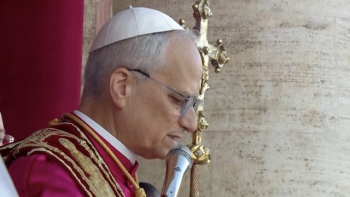The reign of one of the longest serving African dictators is about to end. 93 year-old Zimbabwe's Robert Mugabe's hopes of handing power to his wife, Grace Mugabe, appear to be vanishing after his comrades in the Zimbabwean independence freedom resistance movement have finally taken a stand against his autocratic rule and the population has widely supported the end of his reign. But Robert Mugabe is not alone. There are many more tyrants like him across Africa.
African young people have only known suffering during these tyrants' or their parents' rule. More than half of the population in the countries ruled by these tyrants has only known the years of absolute reign of terror unleashed by these tyrants. These African dictators are the most brutal and power hungry tyrants around the World. They got to power through assassinations, rebellions, or as an inheritance from their fathers or spouses. And, they maintain power through repression, assassinations, systematic killings, corruption, and nepotism.
These African tyrants include Zimbabwe's President Robert Mugabe, Uganda‘s Yoweri Museveni, Togo's Faure Gnassingbé, Gabon's Ali Bongo Ondimba, Rwanda‘s Paul Kagame, Republic of Congo's Sassou Nguesso, Equatorial Guinea's Theodoro Obiang Nguema, Democratic Republic of Congo's Joseph Kabila, and Republic of Cameroon's Paul Biya.
Changing Constitution and Systematic Killings to Cling onto Power.
Many, if not most, have tinkered with the constitution of their country and controversially abolished term limits so that they could remain in power indefinitely. Paul Biya, Yoweri Museveni, Faure Gnassingbe, Paul Kagame, and of course Robert Mugabe have crafted a constitution or amended existing ones, to allow themselves to remain in power for life.
Paul Kagame of Rwanda has recently changed the constitution to remain in power until 2034, and, with provisions to continue after. He has de facto been in power for more more than 24 years. He has systematically killed or jailed opposition leaders both in Rwanda and other countries. He is accused by the United Nations and independent organizations of killing more than 5 millions Congolese civilians and Rwandan refugees, between 1997 and 2010. In recent years, in collaboration with Yoweri Museveni, they have assassinated Rwandan refugees or Rwandan citizens in Uganda. At the same time, Yoweri Museveni has decimated any challenge in Uganda, including systematic massacres of civilians.
After more than 35 years in power, Paul Biya is one of Africa’s last “dinosaur presidents.” He has surrounded himself with trusted elites who maintain corrupt fiefdoms that control a bloated public sector and a fat military structure serving the interests of his supporters and relatives. He has basically silenced anyone who has challenged his tyrany. In 2008, Paul Biya abolished term limits so that he could continue to run for reelections. He has remained in power and appears not to think about stepping down anytime soon.
Nepotism Everywhere to Maintain Dynasties
Separately or at the same time they promoted their sons or spouses to their highest posts in the military or the politics, to make sure these relatives would eventually succeed them, when they die in power. Yoweri Museveni swiftly and against military procedures, promoted his son Muhoozi Kainerugaba through the military ranks all way to Major General, after sidelining other more senior military commanders. He also promoted his wife, Janet Museveni, to a cabinet position as minister of education and sports.
Theodoro Obiang Nguema has been grooming his 48-year-old son, Teodorin Obiang, to replace him, and appointed him his vice-president, despite major corruption and embezzlement cases against him (see our article here).
African dictators do not hesitate to appoint their relatives to the highest positions to ensure that their families remain in control. Joseph Kabila, who took power after his father Laurent Kabila was assassinated by his body guards and Rwandan operatives, made sure his sister, Jaynet Kabila, and brother, Zoe Kabila, become members of parliament. Both are accused of widespread corruption, kleptocracy, and massive illicit personal enrichment. He has refused to step down after his term expired in December 2016.
Relatives Must Pay a Respect or Pay a Price
African dictators are quick to punish family members who try to challenge them and do not repent. Faure Gnassingbé appointed his half-brother, Kpatcha, as defense minister. He soon demoted him, accusing him of trying to undermine his power, and later got him arrested, and sentenced to 20 years in prison.
Paul Kagame allegedly got his wife detained and kept in a safe house for more than three months, accusing him of building a parallel power structure challenging his dominance. The two apparently reconciled, and the wife was again seen in public, with a new gloomy look, after an absence from public events of 3 months (see here).
Corruption Everywhere
Omar Bongo ruled Gabon, for more than 41 years, before he died in 2009, leaving his son Ali Bongo Ondimba, as the new ruler of Gabon. His reign was a typical kleptocracy and the son has perfected that legacy. This has attracted the attention of the judiciary systems around the World. Several court cases, in which Ali Bongo and his relatives are accused of corruption, are targeting his massive wealth in the West, especially in France.
In September 2015, French courts seized two luxury properties belonging to the Congolese Sassou-Nguessoand, who happens to be the father-in-law of the late Ali Bongo, and his relatives.
What is Next for African Tyrants and Their Dynasties?
With the Zimbabwean crisis, many Africans may be wondering whether this is a unique opportunity to challenge African tyrants and the family dynasties they have imposed upon their countries and the Africans. Is the hope of freedom finally knocking at the door of these african tyrannies?

















